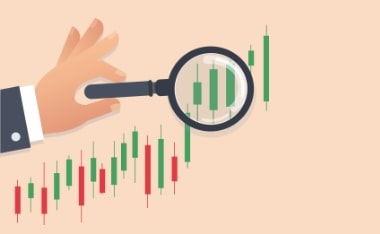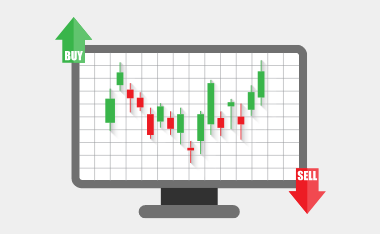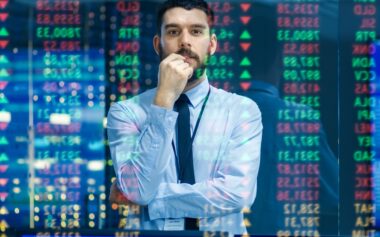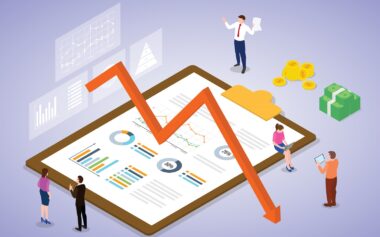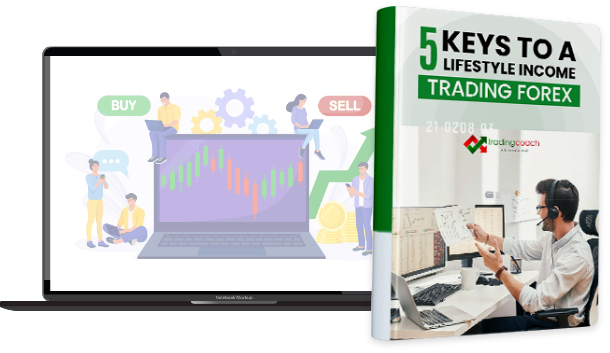How the Forex Market Reacts to Economic Conditions and Global Events

The foreign exchange (forex) market is one of the most dynamic and responsive financial markets in the world.
With a daily trading volume exceeding $7.5 trillion, it is influenced by a multitude of factors, including economic conditions, political events, and unexpected global crises.
Unlike other markets, the forex market operates 24 hours a day, allowing it to react almost instantly to new developments.
This article explores how the forex market has historically responded to significant economic conditions and global events, using examples such as the Global Financial Crisis (GFC), the COVID-19 pandemic, and various political elections.
The Global Financial Crisis (GFC) of 2007-2008
The Global Financial Crisis of 2007-2008 serves as a prime example of how economic downturns can dramatically impact the forex market.
Triggered by the collapse of the housing bubble in the United States, the GFC quickly spread across the globe, leading to severe economic contractions in many countries.
As a result, the forex market experienced heightened volatility, with significant shifts in currency values.
During the GFC, the US dollar initially strengthened as investors sought a safe haven amid the turmoil.
However, as the crisis deepened, the Federal Reserve implemented aggressive monetary easing policies, including slashing interest rates and initiating quantitative easing (QE) programs.
These measures led to a depreciation of the US dollar against other major currencies, particularly the euro and the Japanese yen.
The GFC also highlighted the interconnectedness of global economies and the forex market.
For example, the collapse of major financial institutions like Lehman Brothers had ripple effects across the globe, leading to sharp declines in equity markets and increased demand for safe-haven currencies such as the Swiss franc and the yen.
This period of extreme volatility underscored the forex market’s sensitivity to economic conditions and the importance of closely monitoring global financial developments.
The Impact of COVID-19 on the Forex Market
The COVID-19 pandemic is another event that significantly impacted the forex market.
As the virus spread globally in early 2020, countries implemented lockdowns and other restrictive measures to contain the outbreak.
These actions led to an unprecedented economic slowdown, with many economies contracting sharply in the first half of the year.
In response to the pandemic, central banks around the world took aggressive steps to stabilise their economies.
The US Federal Reserve, for instance, cut interest rates to near-zero levels and launched a massive QE program.
Similarly, the European Central Bank (ECB) expanded its asset purchase programs, while the Bank of England slashed rates and increased bond purchases.
These measures led to significant fluctuations in currency values.
The US dollar, which initially strengthened as a safe haven during the early stages of the pandemic, later weakened as the Fed’s easing measures took effect.
Conversely, the euro and other major currencies gained strength as global investors sought alternatives to the dollar.
The pandemic also highlighted the importance of economic data in the forex market.
Traders closely monitored indicators such as unemployment rates, GDP growth, and inflation to gauge the health of economies and anticipate central bank actions.
For instance, the rapid deterioration of the US labour market in March and April 2020 led to increased speculation that the Fed would implement further easing measures, contributing to the dollar’s decline.
Political Events and Their Impact on the Forex Market
Political events, including elections and policy changes, can also have a significant impact on the forex market.
Elections, in particular, create uncertainty, as traders attempt to anticipate the outcomes and their potential effects on economic policies.
For example, the 2016 US presidential election had a profound impact on the forex market.
The unexpected victory of Donald Trump led to a sharp rally in the US dollar, as traders speculated that his pro-growth policies, including tax cuts and deregulation, would boost the US economy.
However, this rally was followed by periods of volatility as markets reacted to the unpredictable nature of Trump’s administration and the evolving trade policies, particularly concerning China.
Similarly, the Brexit referendum in 2016, in which the United Kingdom voted to leave the European Union, led to significant volatility in the forex market.
The British pound plummeted to multi-decade lows against the US dollar as traders feared the economic implications of Brexit.
Over the following years, the pound continued to experience fluctuations as negotiations between the UK and the EU unfolded, highlighting the forex market’s sensitivity to political developments.
In Australia, elections also play a crucial role in shaping forex market dynamics.
The outcome of federal elections can influence the Australian dollar (AUD) as traders assess the potential impact of new government policies on the economy.
For instance, an election outcome that favours policies promoting economic growth and stability may lead to a strengthening of the AUD, while uncertainty or policies perceived as harmful to economic prospects could lead to a depreciation of the currency.
The Influence of Central Banks and Monetary Policy
Central banks play a pivotal role in the forex market by setting interest rates and implementing monetary policies that influence currency values.
Traders closely watch central bank decisions and statements to anticipate changes in interest rates, which can have a significant impact on currency movements.
For example, when the Reserve Bank of Australia (RBA) raises interest rates, it typically leads to an appreciation of the Australian dollar, as higher rates attract foreign investment.
Conversely, when the RBA cuts rates, the AUD may weaken as investors seek higher returns elsewhere.
The RBA’s monetary policy decisions are influenced by a variety of factors, including inflation, employment, and economic growth, all of which are closely monitored by forex traders.
The actions of other major central banks, such as the US Federal Reserve, the European Central Bank, and the Bank of Japan, also have a global impact on the forex market.
For instance, when the Fed raises interest rates, it often leads to a strengthening of the US dollar as investors flock to US assets.
Conversely, when the Fed cuts rates, the dollar may weaken as traders seek higher returns in other currencies.
Global Events and Their Long-Term Effects
In addition to immediate reactions, global events can have long-term effects on the forex market.
For example, the aftermath of the GFC led to a prolonged period of low interest rates and unconventional monetary policies, which have continued to influence currency values over a decade later.
Similarly, the COVID-19 pandemic has accelerated trends such as digitalisation and the shift towards remote work, which may have lasting effects on global economies and the forex market.
Other global events, such as natural disasters, geopolitical conflicts, and trade disputes, can also impact the forex market.
For instance, the ongoing trade tensions between the US and China have led to fluctuations in the Chinese yuan and other Asian currencies, as traders react to developments in trade negotiations and their potential impact on global supply chains.
My Final Word on How The Forex Market Reacts to Economic Conditions and Global Events
The forex market is highly responsive to economic conditions, political events, and global crises.
Events such as the Global Financial Crisis, the COVID-19 pandemic, and major elections have demonstrated the market’s capacity to change in response to new developments.
For forex traders, understanding these dynamics is crucial for navigating the market successfully.
By closely monitoring economic indicators, central bank actions, and global events, traders can anticipate potential currency movements and adjust their strategies accordingly.
Disclaimer
The information in this article is intended to be general information in nature and is NOT general financial product advice, nor personal financial product advice.
It does not take into account your objectives, financial situation or needs.
Past performance is not necessarily indicative of future performance.
Any results on our website, including this page, are illustrative of concepts only and should not be considered average results, or promises for actual or future performance.
The Trading Coach International does not operate under an Australian Financial Services Licence (AFSL), as the services we provide do not require one.
Speak with your registered financial advisor before making any financial decisions.

